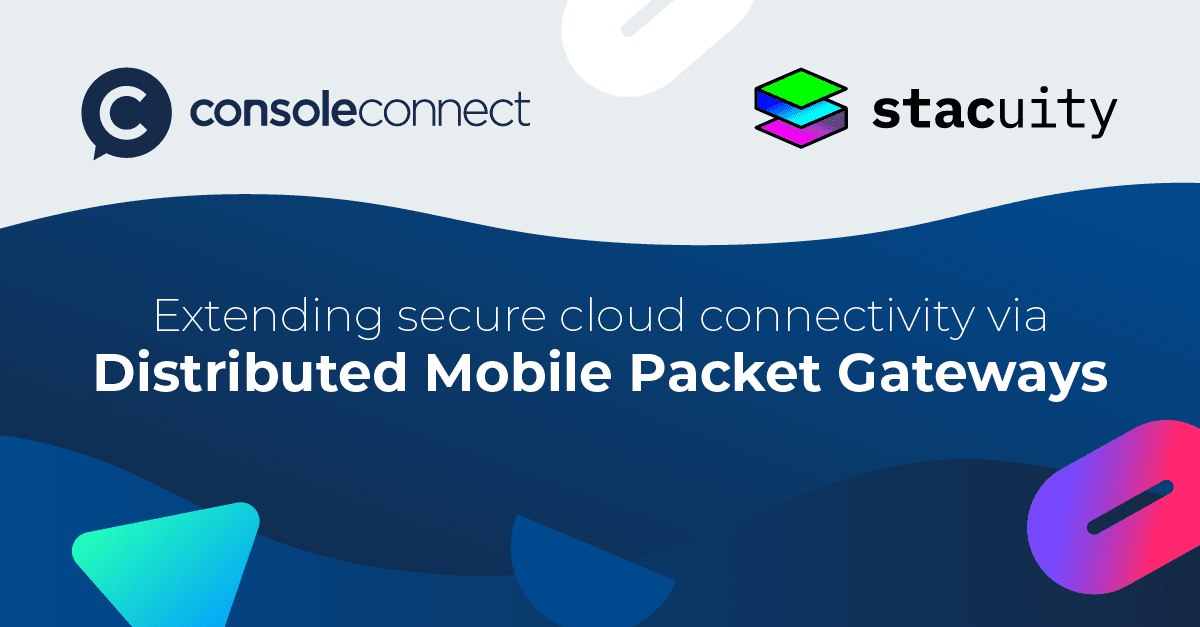
Console Connect and Stacuity are excited to announce a new collaboration that extends the reach of Stacuity’s software-defined mobile core network using Console Connect’s global Network-as-a-Service (NaaS) platform.
Customers can now benefit from mobile local breakout using Stacuity’s global network of Packet Gateways (P-GW) from any Console Connect-enabled location worldwide, helping them reach 1000+ data centres and 180+ cloud locations across more than 55 countries worldwide.
The collaboration delivers a more reliable and secure way for MNOs, MVNOs, system integrators and their enterprise customers to connect their devices and IoT applications via local mobile packet gateways to the cloud. By leveraging Console Connect’s private, automated backbone, Stacuity customers can improve network reliability and performance, making the solution a good fit for:
- Security cameras needing consistent streaming performance.
- Interactive applications requiring consistently low latency.
- Applications in regulated markets with specific data sovereignty requirements, such as payment processing or connected health.
- Constrained, low-power devices lacking sophisticated security capabilities or which are difficult to configure due to their location, where the only option is to enforce security within the network.
The Stacuity edge network includes a number of innovative services designed to meet the needs of demanding applications such as AI, asynchronous messaging, and data analytics by optimising routing, performance, and latency.
The edge network is underpinned by globally distributed packet gateways and smart packet steering platforms, allowing customers to control and optimise the path their data takes. This helps to meet compliance and regulatory requirements while also reducing latency by processing data at the edge.
Using Console Connect’s CloudRouter® , traffic can be delivered via a local mobile packet gateway to a private Layer 3 network, where it can reach major cloud providers such as AWS, Google Cloud, IBM Cloud, Microsoft Azure, Oracle Cloud, OVHcloud, Vultr, and more.






